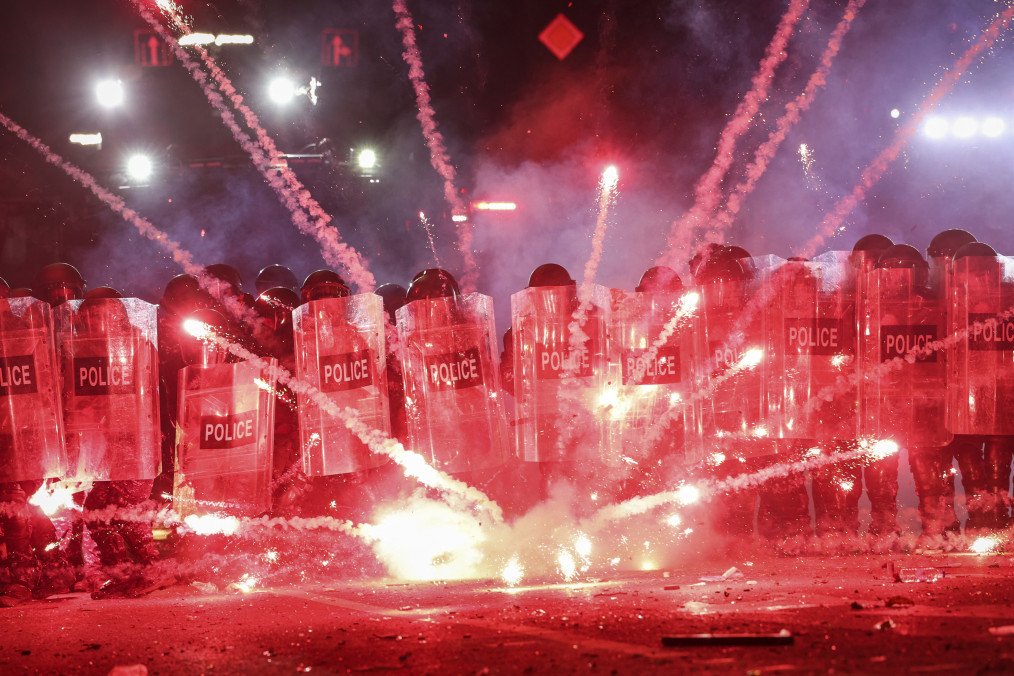- Category
- Latest news
Georgia Adopts Anti-Protest Laws and Strips President of Post-Term State Protection

The parliament of Georgian ruling-party Georgian Dream passed a law on December 13 prohibiting the use of pyrotechnics, lasers and the covering of one’s face at protests. Another law, passed on the same day, denies the Georgian President Salome Zourabichvili the right a state protection service after her terms ends.
According to the law targeting protesters, those present at protests are forbidden from having in their possession any lasers or objects that emit a bright light, or generally any item that “may hinder the work of the representatives of state authority,” as well as concealing one’s face with any sort of facial covering.
The law also necessitates the regulation of the production and sale of pyrotechnics and their import and export in and out of the country.
Lasers, as well as pyrotechnics, have seen widespread use in Georgia’s demonstrations. Protesters shine the beams directly into police forces’ eyes in attempts to disorient them, especially during violent dispersals of protesting civilians.
Face coverings are another means of defense, as cameras with facial recognition are stationed in most areas where protests occur. The footage is subsequently used to identify demonstrators, who are tracked down and subjected to arrests, beatings, house searches, or the confiscation of their belongings.
This new law would weaken protesters' ability to defend themselves and make it easier for the government to control and suppress demonstrations.
Georgian Dream passed another law on December 13 stripping presidents of their right to a state protection service at the conclusion of their term if they have committed constitutional violations or criminal offenses during the length of their presidency.
This law targets current president Salome Zourabichvili, who Georgian Dream’s constitutional court declared had violated the law by making visits to Europe without governmental approval. Despite the government’s refusal to officially authorize her to attend foreign meetings, Zourabichvili traveled to the EU at her own expense to meet with European partners.
As a result, Georgian Dream attempted to impeach Zourabichvili. However, they could not gather the 100 parliamentary votes necessary to proceed with the impeachment.
On November 28, Georgian Prime Minister Irakli Kobakhidze announced that Georgia would suspend negotiations on joining the European Union until the end of 2028. The decision sparked mass protests in the capital, Tbilisi. The protests, which are currently ongoing, often involve violent clashes between police and protesters.
On October 28, thousands gathered outside the Georgian Parliament in Tbilisi, protesting alleged manipulation in recent parliamentary elections.
Josep Borrell, the EU’s chief diplomat, and US Secretary of State Antony Blinken have called for an investigation into the recent Georgian parliamentary elections, citing reports of irregularities after the Moscow-aligned Georgian Dream party secured nearly 54% of the vote in October.



-111f0e5095e02c02446ffed57bfb0ab1.jpeg)

-72b63a4e0c8c475ad81fe3eed3f63729.jpeg)
-4396c43e8360a30c66f63f6668fddeb9.jpg)